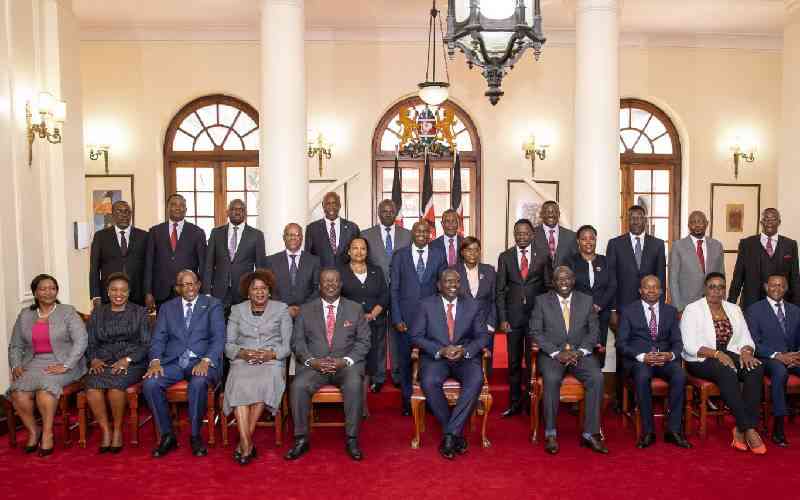
In church last Sunday, the focus was irrigation to deal with hunger. Respect for the rule of law was Monday's topic, as was the financial sector's Sh500 billion Sanduku PPP Initiative for affordable housing, industrial parks and other infrastructure investment.
By Tuesday, attention had turned to the tenant purchase-based social housing delivery part of the affordable housing plan. Part of Tuesday and all of Wednesday was spent on diplomatic engagements, and on Thursday, the "non-fail" Cabinet was sworn in with a missive to respect the Constitution and uphold the rule of law at work.